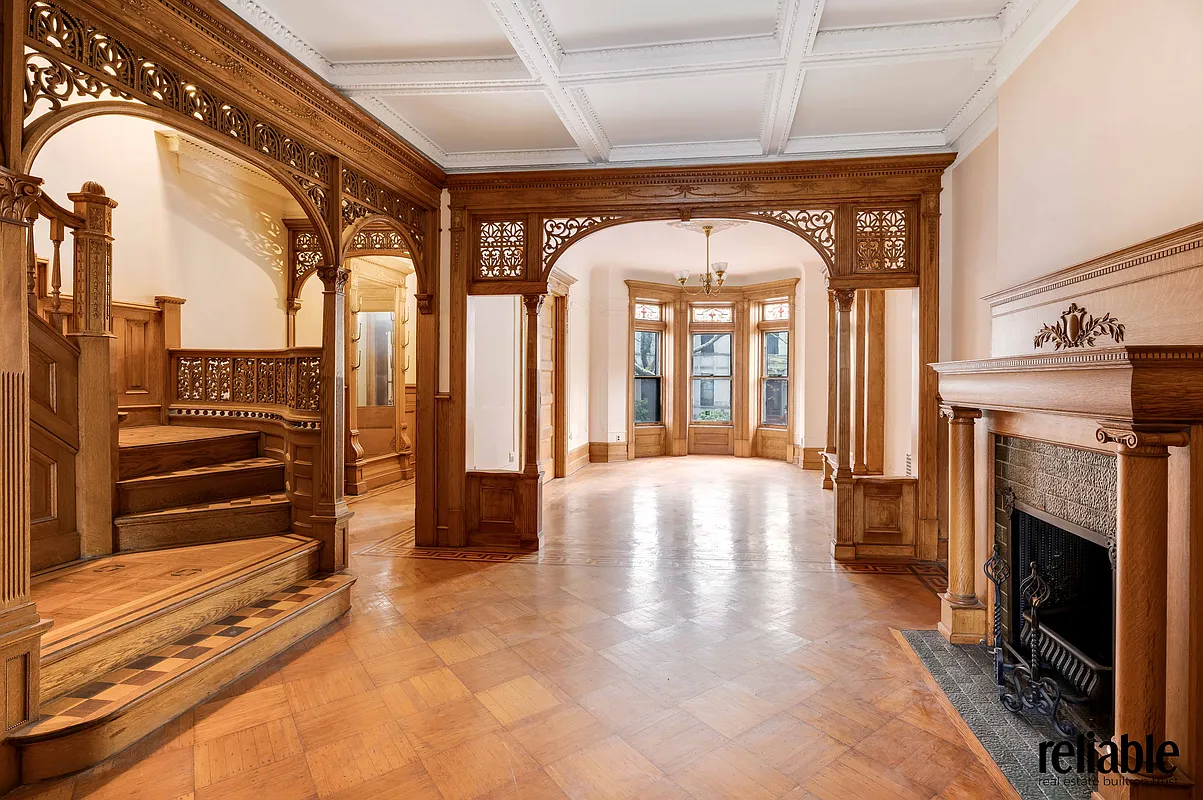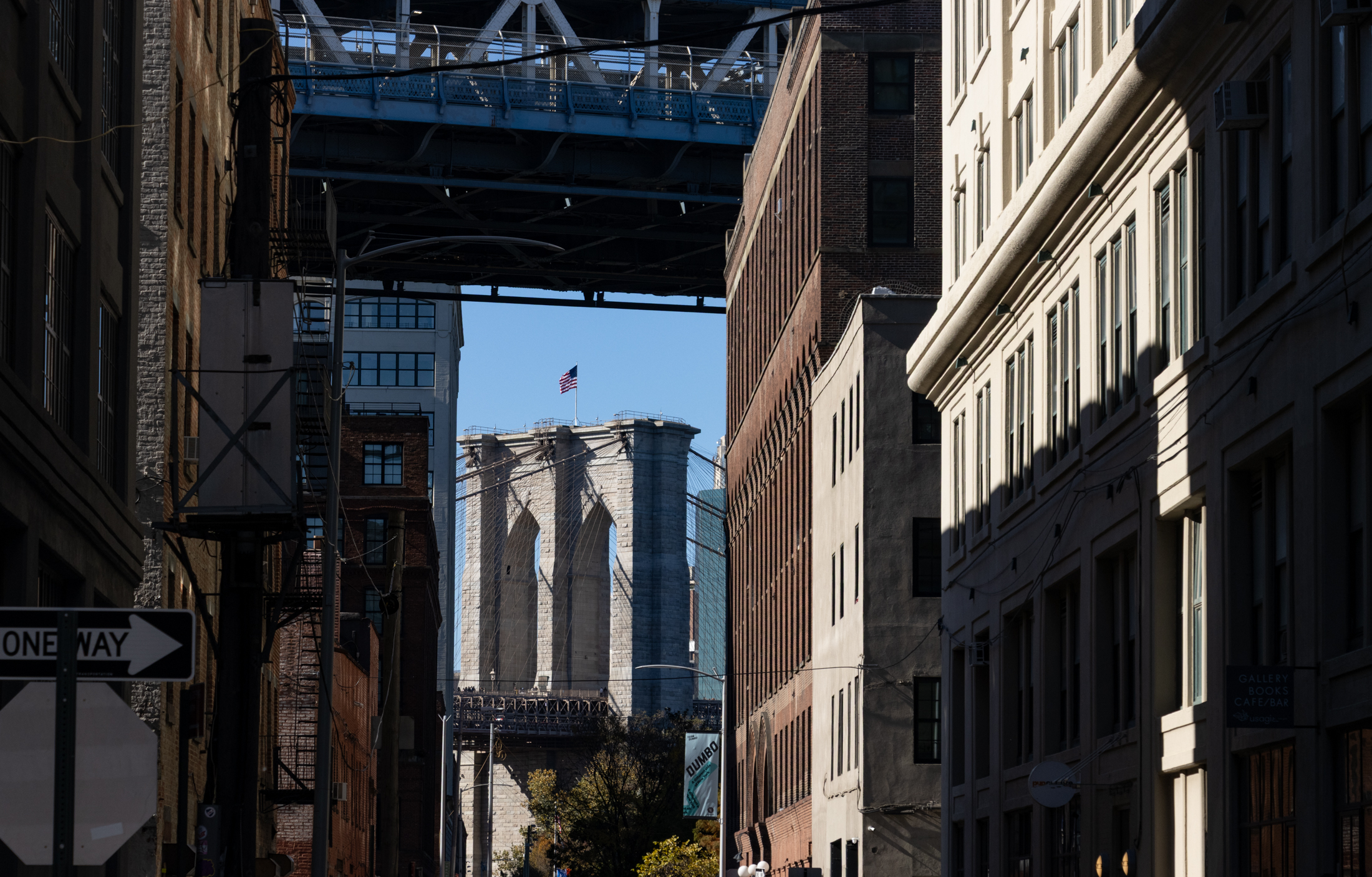Historic Heights Co-op Planning Arboricide?
All is not right at the Mansion House, the 107-unit co-op at 145 Hicks Street in Brooklyn Heights. According to a poster in the Brownstoner Forum yesterday, the co-op board has decided to chop down the old, but quite healthy, Elm tree outside its front door. The reason, The Brooklyn Paper reports today, is that…


All is not right at the Mansion House, the 107-unit co-op at 145 Hicks Street in Brooklyn Heights. According to a poster in the Brownstoner Forum yesterday, the co-op board has decided to chop down the old, but quite healthy, Elm tree outside its front door. The reason, The Brooklyn Paper reports today, is that the board doesn’t want to spend the $8,000 to reroute electrical pipes ensnared in the 75-foot-tall tree’s roots. (The issue has some immediacy because there’s a leak coming from a broken pipe.) That’s what, less than $80 per apartment? Come on! Speaking of the Mansion House, we dug up a neat wood engraving that comes to us from the Long Island Historical Society via Clay Lancaster’s must-read Old Brooklyn Heights. According to the book, the Mansion House was built in the 1930s on the site of a former Brooklyn Collegiate Institute for Young Ladies. Check it out on the jump.
Mansion House to Kill Tree [Forum]
A Tree Falls in Brooklyn [Brooklyn Paper]






1:39 presents good points. This board is going to get themselves in trouble, because of how this action would affect coop owners financially. If removal of a tree raises temperature thus electric bills in Summer, because of removal of shade, and if the removal of the tree lowers property values for everyone, this board needs to put it to vote with all shareholders! Ugh. You know, this is why co-op sales are slowing. Everyone hears the stories of the crazy power hungry Napoleon complex co-op boards. These boards are always going with what a few in charge on the board want, not with what’s good for the overall building. We experienced that in our small co-op building. I could wait to sell and get out of there.
Can the shareholders vote to enforce term limits for board members?
If I were a board member, I would be very concerned about potential personal liability stemming from this Board vote. Typically, the right to destroy or alienate property owned by a coop belongs to the shareholders of a coop, and it is not within the Board’s authority to do so without the full support of a shareholder vote. So unless there is a another side to this story that has not come to light yet, this Board appears to be in the wrong and to have overstepped its authority. The Board should protect itself by reracting its vote and putting the matter to a shareholder vote. A coop Board is held to a high standard of awareness of its own bylaws and local real estate laws.
All of this ugliness could have been avoided if the board had simply presented all of the facts and put a vote to the shareholders. Don’t we all just want what’s best for our building?
I am a mansion house shareholder too. For a board to nickle and dime over the cost of rerouting electric, when they have yet to come clean about what they (over) spent on the new hideous courtyard which we paid for through assessments is ludicrous. Why, they have not even bothered to get the financial statements , which were due months ago, to the shareholders. What are they trying to hide? Talk about fiduciary responsibility! Ha! Save the tree! Shareholders please attend Monday’s lynching…oops…meeting.can we impeach board members?
If it’s only about the 8K, how about an assessment? I hate paying them too, but sometimes you do what you gotta do!
This Board epitomizes the attitude that makes the Heights about as un-hip as a neighborhood can be. Really like a little red state in the middle of a young enlightened new Brooklyn. Too bad, let’s hope this tree is the end of their reactionary thinking and the limit of their power. Quite ignorant really. The only lovely thing about ugly little Hicks Street is its trees.
An alternative would be to take up a collection in your building to see if you could offset the cost differential cut down vs. reroute, if indeed this goes against the wishes of most in the building. Seriously, if I lived there, I’d kickdown a hundred bucks to save the tree. If enough people give money, the board will no longer have the rationale to go through with it.
I think Brooklynites care enough about our trees that you could even sit outside with a table, a sign, and a coffee can and passers by would toss in a little money. If I were strolling by I’d definitely put in a fiver.
A thought.
Some of the blood-lust for the tree comes from the mistaken belief that the tree is in danger of falling. Well, yes it is, and so is every other tree in New York City. So I think we’d just better bite the bullet and cut them all down!!